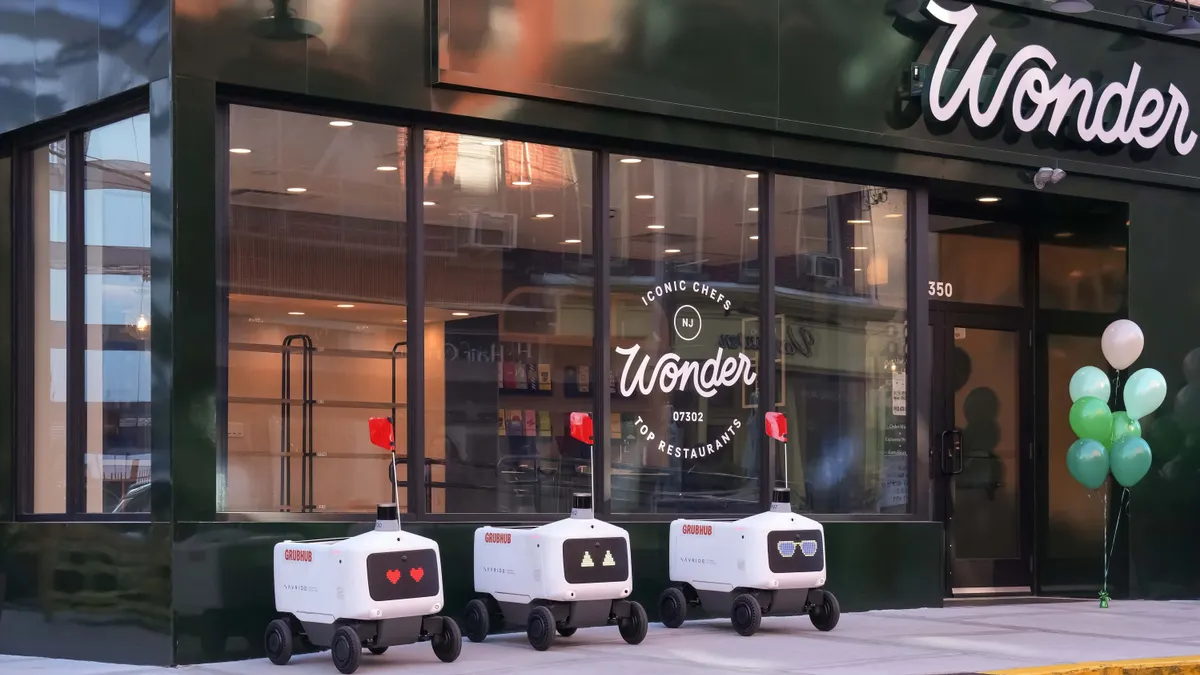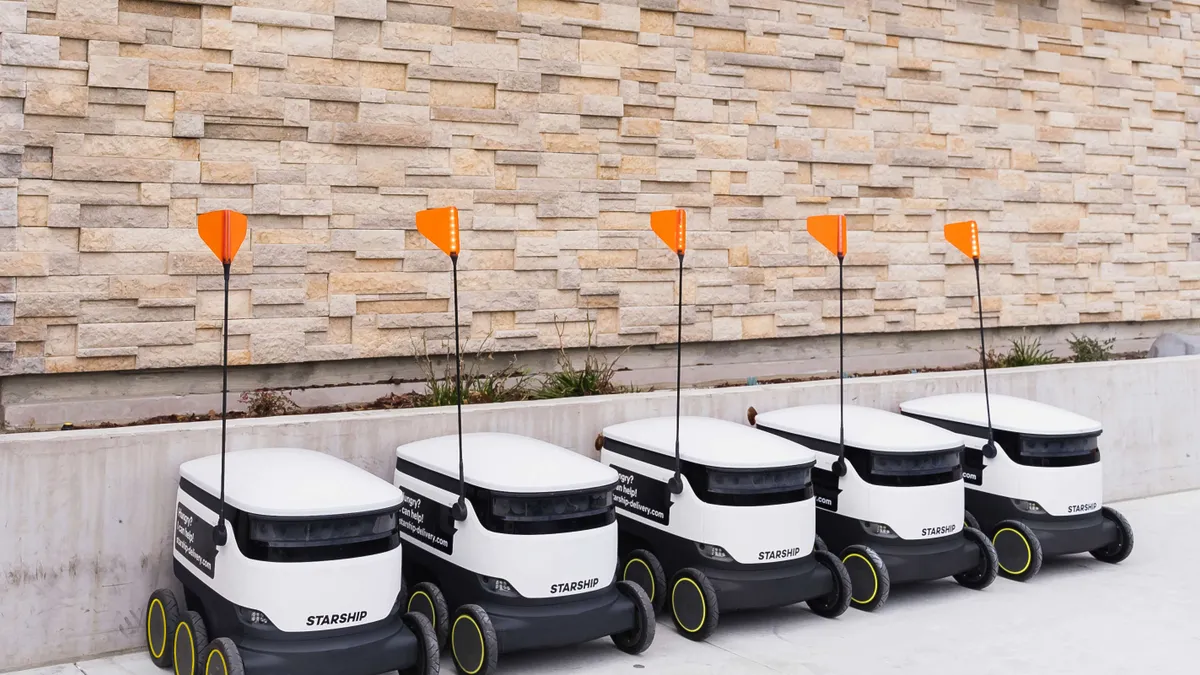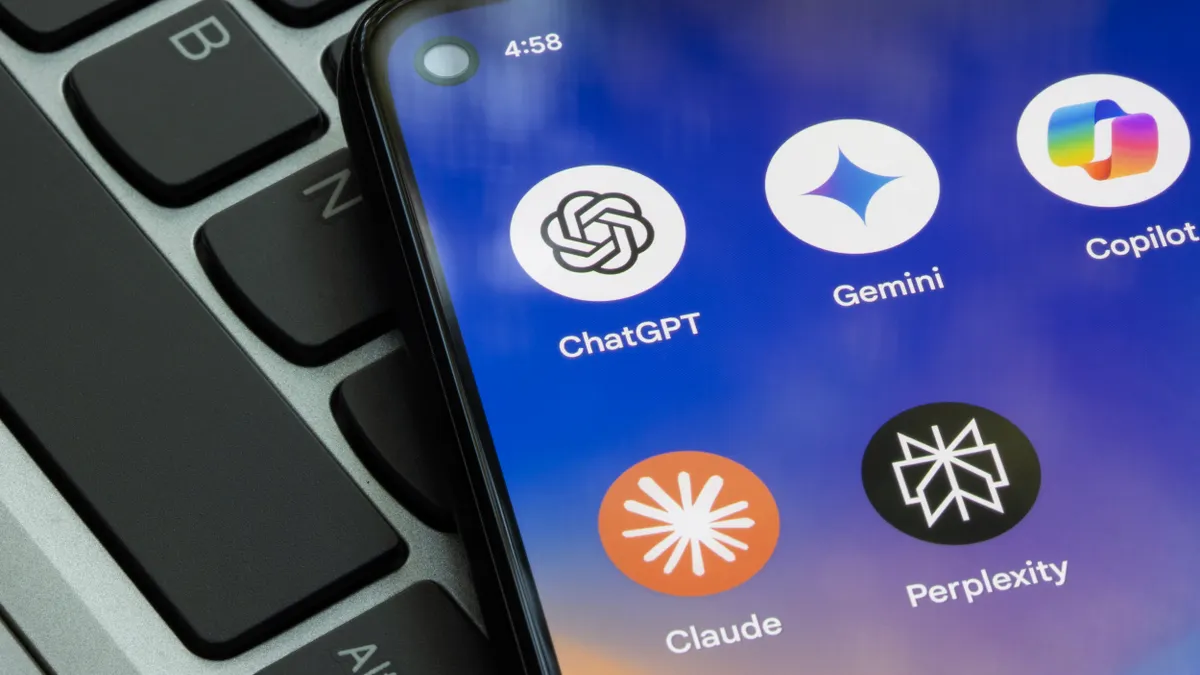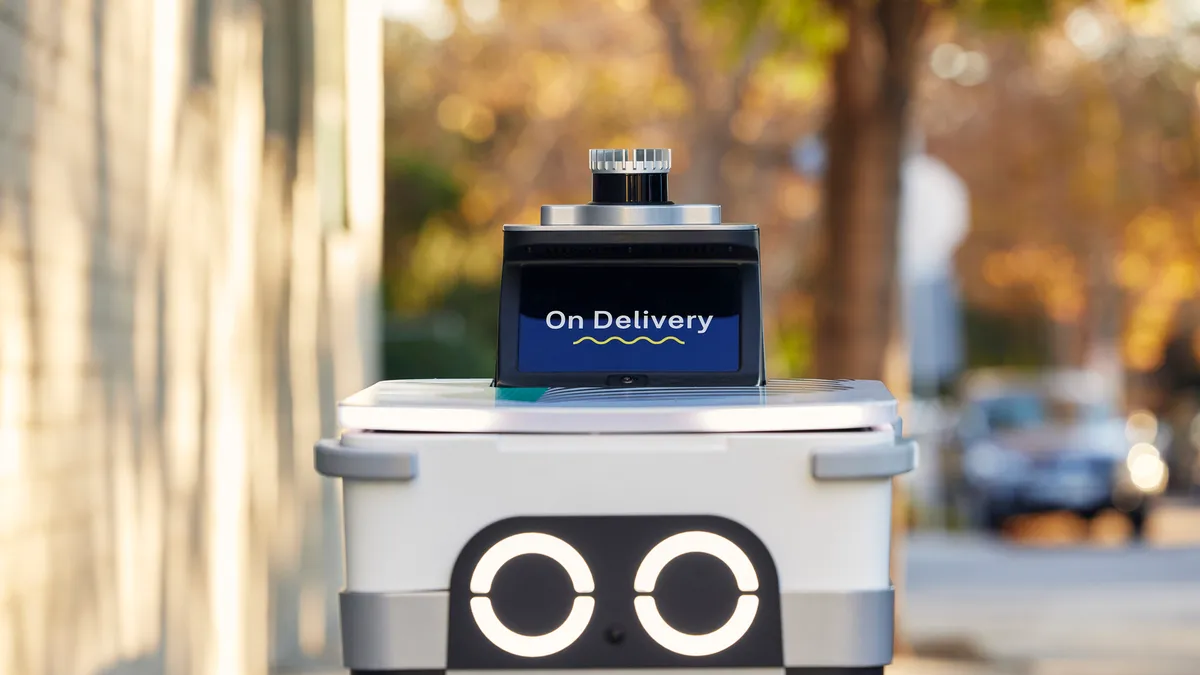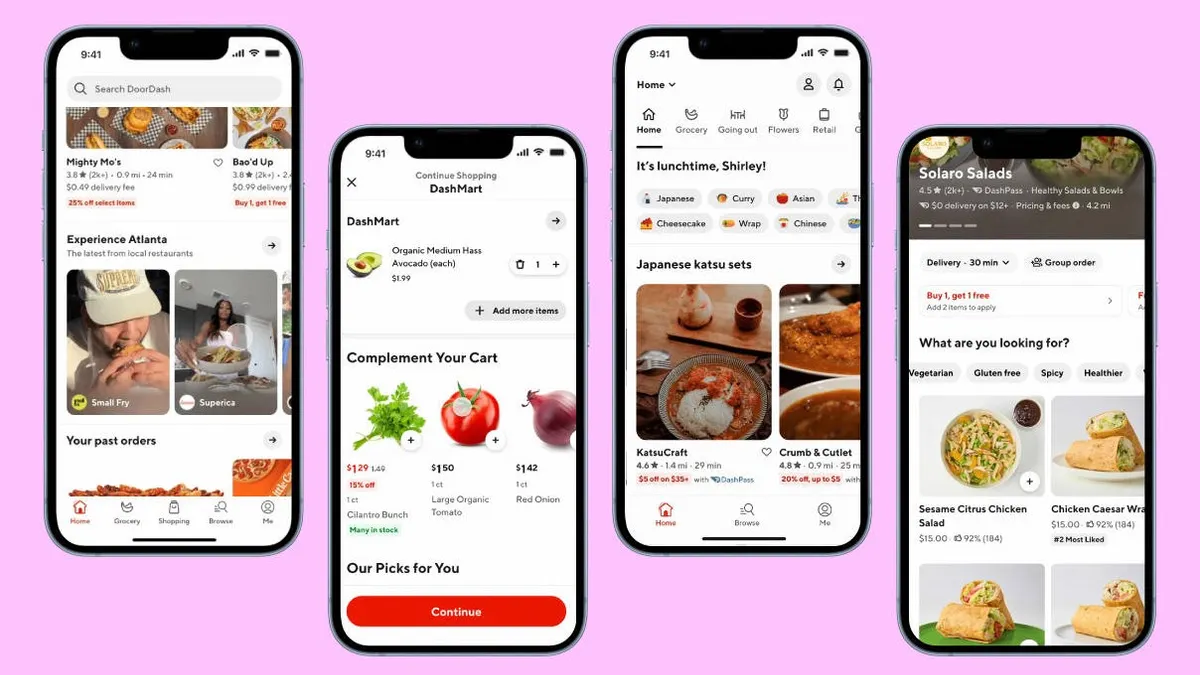From launching a new mobile app and loyalty program to offering a new suite of chicken sandwiches, 77-unit B.GOOD has undergone a recent transformation. The farm-to-table fast casual, which was established in the early 2000s by two high school buddies looking to create a healthy option to fast food, has been keenly focused on current tech trends. As part of its strategy, the company opened a ghost kitchen in Chicago this summer as a way to expand its existing off-premise footprint.
For CEO Chris Fuqua, bringing food to where people are is an important concept for restaurants to grasp today, and technology is better allowing restaurants to do that. Fuqua, who spent over eight years in various roles at Dunkin' Brands, believes technology will continue to be an important part of the company's off-premise strategy. .
Restaurant Dive spoke with Fuqua about B.GOOD's technology strategy, what it takes to create a robust digital platform and what other restaurants should consider when building up their own off-premise and digital strategies.
Questions and answers have been edited for clarity and brevity.
RESTAURANT DIVE: What made you decide to use the Kitchen United model as part of your growth strategy?
CHRIS FUQUA: If you take a step back and think about why restaurants are pursuing delivery … it is because the modern consumer is much more likely to want what they want where they want it when they want it. The traditional brick and mortar restaurant is still an important place to build your brand and still an important place to introduce people to your products, but today's consumers, and I'm certain tomorrow's consumers, are going to expect to be able to eat where they want on a moment’s notice.
We looked at the opportunity with Kitchen United as a way to get into a ghost kitchen concept in a market that is really important to us and one that we think is primed for growth in Chicago. We are trying it out in Chicago and we're excited to introduce our brand within the Chicago metro area.
The really interesting thing for us that we see with the Kitchen United concept is that we can try some new things and evolve how we interact with consumers. I feel this is an opportunity to build the catering platform in the Chicago market and serve some of the downtown customers that we don't necessarily serve today with our stores in the suburbs. We feel that there is an opportunity to do delivery from the Kitchen United premise.
It's all kind of propelled by our new loyalty program and mobile app that launched a couple of months ago [and] we continue to see great engagement and capabilities within the platform every week as we roll out new features.
Why do you think it is important for a midsize chain such as B.GOOD to have a solid off-premise strategy?
Fuqua: Brands that want to stay relevant have to evolve with the way customers prefer to eat. I spent a bunch of time at a big QSR before coming to B.GOOD, and we were constantly thinking about how to evolve our positioning and how to evolve our product offerings... with what was going on with the different generations. I think that the reality is the millennial and Gen-Z generations are very vocal about what they want. They care about brands that stand for something. They want brands to adapt to their lifestyle a little bit more than they want to adapt to the traditional brick-and-mortar approach that retail has delivered for the last century.
"The millennial and Gen-Z generations are very vocal about what they want. ... They want brands to adapt to their lifestyle a little bit more than they want to adapt to the traditional brick-and-mortar approach that retail has delivered for the last century."

Chris Fuqua
CEO, B.GOOD
How do your app and loyalty program fit within your digital strategy?
Fuqua: We're trying to put our brand in the hands of more people. We're trying to make sure that we build awareness for the brand because we think we have a great menu of products that people of all types could be interested in. If you basically start from the beginning and say I want to introduce people to our brand through an aggressive social media approach, I want marketing to be reaching people who could be interested in this type of brand. I then want to go from social media and lead people into an app experience that is convenient, useful and repeatable and something that someone wants to use on a regular basis. My app needs to be solid. It needs to work and needs to be something that consumers are willing to use.
Tied to the app, I need a loyalty program that can drive different types of behavior. One of the reasons we launched the new loyalty program is it went away from a surprise and delight program to a points-based program where I can actually work with consumers to help them earn rewards faster. I can give them rewards for doing specific behaviors. If I want to drive a specific daypart or specific day of week or specific product, I have a much easier way to do that easier of doing that if consumers understand what the currency of points might be.
After I get them into the loyalty program [and] after I get them in the restaurant, we have technology in the restaurant that is much more consumer friendly. So digital menu boards in all of our corporate stores make it much easier for someone to come into our restaurants and follow along.
Once you've experienced the brand in the restaurant and you like the food, when you have enough options of dining out or deciding to eat something, you go onto a delivery service, or hopefully go on to our app. We are also in the process of integrating with a specific third-party provider into our app so customers can go into our app and select either dine-in, takeout or delivery. The delivery experience will virtually be seamless.
We want to be top of mind when somebody thinks about eating healthy, eating something that is better for you, or eating something in a way that makes you feel good. I want to make sure my brand is present whenever consumers are thinking about eating something we can provide.
How do these digital and tech strategies help B.GOOD create a competitive edge?
Fuqua: I think technology is impacting every single part of the restaurant experience from the consumer experience all the way through how something is being made in the kitchen all the way through how we do off-premise. One of the real benefits in my previous role is we had a real focus on building a brand from the technology side and trying to become a leader. I watched the restaurant industry change over the last 10 years quite a bit in terms of the use of technology.
When I arrived here at B.GOOD, I saw that there was already a substantial investment that had been made in in-store technology, and I was really excited. We have a suite of tools that I think put us ahead of the curve in terms of operating a better restaurant, engaging with consumers in a better way and building on something that is sustainable over the long term.
"I think technology is impacting every single part of the restaurant experience from the consumer experience all the way through how something is being made in the kitchen all the way through how we do off-premise. "

Chris Fuqua
CEO, B.GOOD
What other digital concepts do you anticipate will become a bigger part of the restaurant industry going forward?
Fuqua: I think supply chain is going to be the next part of the business that is going to be disrupted by technology. We're already looking at things like blockchain and how do we track food all the way from ... the farm to the restaurant and how do we make sure we're giving customers the confidence that there is a trail in the supply chain that they feel good about.
Another thing I was going to say is you can't just adopt technology for technology's sake. You have to make sure that you’re making a smart decision about which technology you’re actually using within a restaurant from the importance of the user interface on a POS terminal and making sure that it is easy to use from a labor perspective to making sure you’re selecting the right loyalty partner. All of these types of decisions really matter. You can't just adopt technology because it’s a neat thing to do. You have to do it because it’s going to impact your business profitability.
What were some of the things you were considering when selecting a loyalty and app partner?
Fuqua: On the app and loyalty side, I think it is it is the ownership of data, I think it is the ability to use the data and user-friendly interfaces when you're doing analysis to try to figure out how to use the tools. I think it is replicability and ability to scale and add on specific features. Lots of vendors out there say they can do something, but if it hasn't been proven by then, it is hard to believe that it can be something you can scale with.
Depending on where you are with your company, there are some technologies or some things you might need at certain stages at company's growth that you might not need later or that you might not be ready for at a certain time. If you're a 10,000-unit chain that is largely franchised versus a five-unit chain in earlier stage, the use of technology a little bit different. In a very small chain, you might not need the most sophisticated POS system. You might need something that is a little more cost effective and easier to roll out and easier to get into place.
A larger chain might need a little bit more of a sophisticated system. If you're working with an app or loyalty provider, … a very large chain could have billions of lines of data; a smaller chain might not have that much. The capacity of data capabilities and capacity and the specific venders come into play when you think about size and scale of the company you’re working with.
How well positioned do you expect B.GOOD for a more tech-centric future within the restaurant industry?
Fuqua: I don't think it ever ends. Technology is something you have to be constantly looking at and understanding and looking at how it impacts the business. I have a lot of confidence in our head of IT, and I know he is out there looking at new capabilities and new processes and procedures on a regular basis. I feel like we are well positioned, but it is something that we can never sleep on.










